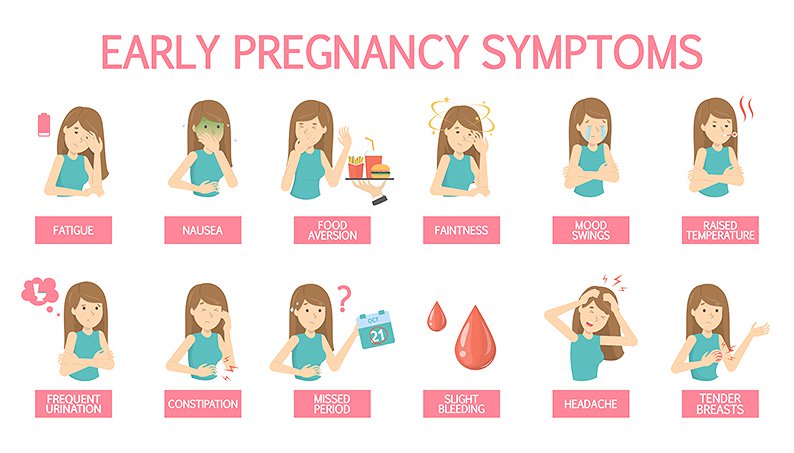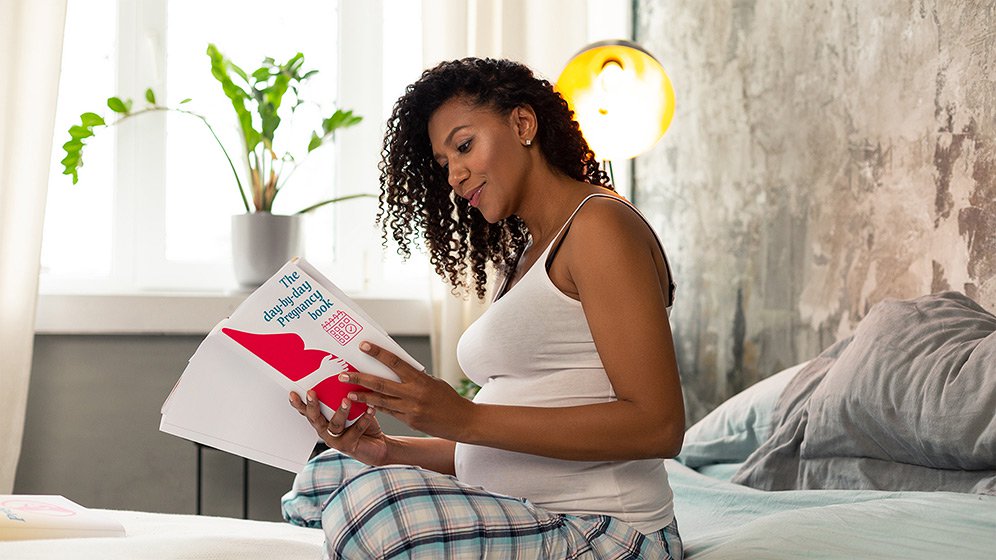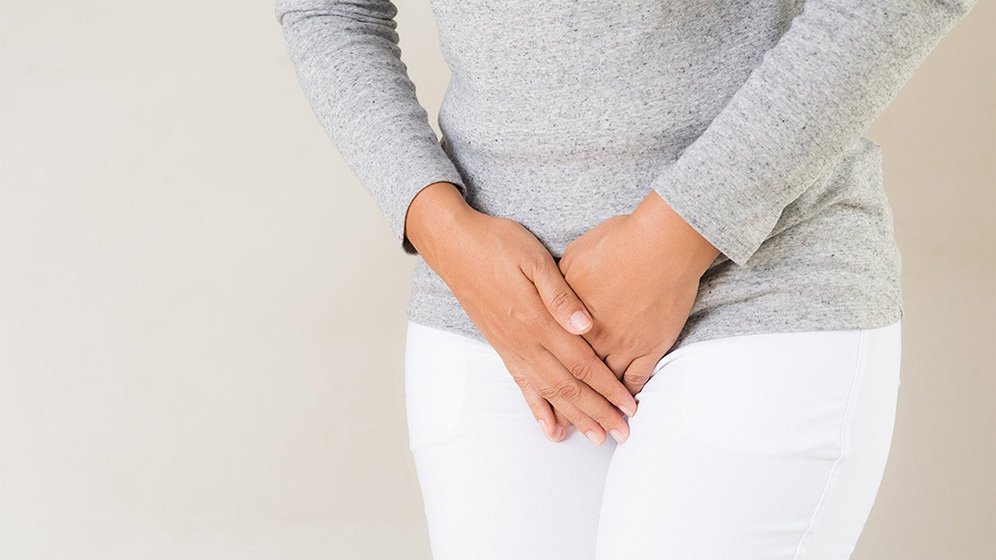Am I Pregnant? The First Signs & Symptoms of Being Pregnant

Pregnancy involves significant hormonal changes that trigger a variety of symptoms. Some women experience many of the symptoms of being pregnant, while others have only a few. Knowing you are pregnant sooner gives you an early start on a healthier pregnancy for you and your baby.
What Are Early Signs of Pregnancy?
While missing a period is a well-known sign of pregnancy, there are other early signs of pregnancy to consider. These include breast changes, fatigue, frequent urination, and nausea (morning sickness). If you find yourself wondering "Am I Pregnant?", taking a pregnancy test is recommended, especially if you're experiencing any of the following early pregnancy symptoms.

Missed Period
Missing a period is often the first sign of possible pregnancy – and the most obvious. After conception occurs, your body produces hormones that stop ovulation and the shedding of the uterine lining. As a result, your menstrual cycle stops, and you won’t experience another period until after giving birth. However, some pregnant women may still experience light bleeding around the time of their expected period.
It's important to note that missing your period isn’t always a sign of pregnancy. Other factors, such as stress, excessive exercise, dieting, hormone imbalances, and various other reasons, can also lead to irregular periods.
Slight Bleeding or Cramping
In some cases, women may experience a small amount of bleeding, known as implantation bleeding, very early in pregnancy. This occurs when the fertilized egg attaches to the uterine lining, typically around 10-14 days after conception. Implantation bleeding can be mistaken for a period, but is usually lighter, spottier, and occurs earlier than a menstrual period. Some women also experience cramping as the uterus begins to expand and change due to pregnancy.
Nausea and Vomiting
Experiencing nausea in the morning, afternoon, or evening is a common early sign of pregnancy. Also referred to as morning sickness, this condition affects more than half of pregnant women. Symptoms include feelings of nausea, with or without vomiting, and loss of appetite. These bouts of queasiness are often attributed to rapidly rising hormone levels, which slow down the stomach's emptying process.
Morning sickness can begin as early as three weeks after conception and may settle by week 12, although it can continue beyond this period or resurface at around 32 weeks. While pregnancy-related nausea is generally normal, it can be a problem if you become dehydrated. In such cases, you should contact your healthcare provider.
Frequent Urination
Shortly after conception, many women find themselves taking more trips to the bathroom, especially at night. This increase in urination is due to elevated levels of body fluids, improved kidney efficiency, and the growing uterus against the bladder. These frequent trips to the bathroom can also contribute to feelings of fatigue, which is another common early pregnancy symptom.
Fatigue
Many women in their first trimester find that extreme fatigue is a telltale sign of being pregnant. This fatigue is influenced by the peak in progesterone levels, a hormone essential for maintaining your pregnancy and supporting the baby’s growth. However, progesterone also slows down your metabolism, leading to increased feelings of sleepiness. Additionally, the combination of high progesterone, lower blood sugar levels, lower blood pressure, and increased blood production can leave you feeling drained.
Overwhelming tiredness is common in early pregnancy. It’s important to listen to your body during this early stage and prioritize getting more sleep or rest. Energy levels will typically rise again around the fourth month of pregnancy once the placenta is established.
Tender, Swollen Breasts
One of the first pregnancy signs women may notice is a tingling or sore sensation in their breasts, beginning as early as two to three weeks after conception. Breasts may also feel fuller or heavier during this time. These changes are like those you may have noticed in the few days leading to your period.
During pregnancy, further breast changes occur, including the darkening of the skin around the nipple and increased visibility of veins in the breast. These changes are common and indicative of the hormonal changes taking place in preparation for pregnancy and breastfeeding.
Other Symptoms of Being Pregnant
While the above are the most common signs of pregnancy, there are other early pregnancy symptoms to be aware of.
Food Cravings or Aversions
If you find yourself suddenly craving unusual food combinations, like dipping potato chips in mayonnaise or wanting to eat a jar of pickles, you may suspect that you are pregnant. On the other hand, you may experience aversions to your favorite foods, and your favorite grilled salmon may suddenly make you turn your nose.
Food cravings and aversions are common symptoms of being pregnant, particularly for foods that provide energy and calcium, such as milk and other dairy products. Like most early signs of pregnancy, these changes in food preferences are thought to be influenced by hormonal changes, especially during the dramatic shifts of the first trimester.
Mood Swings
Another effect of those raging first-trimester hormones is feeling unusually emotional or weepy. Some women may notice increased irritability or rapid swings from happiness to sadness.
The emotional changes experienced during pregnancy are a result of pregnancy hormones influencing the brain's chemicals, leading to mood fluctuations. As the body adapts to the hormonal shifts throughout pregnancy, it is typical for emotional responses to vary more than usual.
Higher Body Temperature
In early pregnancy, your body temperature rises and then gradually decreases as your pregnancy progresses. This rise is due to hormonal changes and increased demands of the growing baby. Coupled with heightened blood circulation, it leads to the well-known “pregnancy glow” and warmth many expectant mothers feel. You might notice your skin feeling warmer, an increase in sweating, or start to experience night sweats. While highest in the first trimester, remember that as pregnancy progresses, your temperature can increase more easily, especially during exercise or hot weather.
Dizziness and Pregnancy Brain
Headaches, lightheadedness, and dizziness are other common early pregnancy symptoms. Along with fatigue and nausea, many women also feel dizzy or lightheaded during early pregnancy. This is often caused by factors such as low blood pressure, dilating blood vessels, and lower blood sugar levels.
To manage these lightheaded feelings, it is essential to take precautions such as transitioning slowly from sitting to standing and maintaining steady blood sugar levels with small, regular snacks.
Constipation
Constipation during pregnancy refers to infrequent, hard bowel movements that are difficult to pass. This common issue is caused by increased production of progesterone, which slows down the passage of food through the intestines. Constipation may also be caused by the pressure of your growing uterus on your rectum.
Drinking plenty of water, increasing your dietary intake of fiber, and engaging in gentle, low-impact exercises like walking or yoga can help alleviate the discomfort. Consulting with a healthcare provider can help find the right balance to manage constipation effectively during pregnancy.
How Early Do Pregnancy Symptoms Start?
All these early signs of pregnancy are a good guide to help you determine if you might be pregnant, but they don’t provide definitive answers. Pregnancy symptoms vary between people and even pregnancies for the same person.
If you are experiencing any of the above symptoms and suspect you might be pregnant, taking a pregnancy test will help you know.
How Soon Can I Take a Pregnancy Test?
Taking a pregnancy test can provide clarity amidst pregnancy symptoms. With First Response Pregnancy Tests, you can get accurate results and support for your journey. The First Response™ How Soon Can You Take a Pregnancy Test Calculator can help you know the earliest day that you can take a pregnancy test. FIRST RESPONSE™ Early Result Pregnancy Test is an at-home pregnancy test that can detect a pregnancy as early as 6 days before your missed period. 1 Remember to confirm results with your healthcare provider.
For frequent testing, opt for the First Response™ Comfort Check Pregnancy Test which includes 3 Early Result Pregnancy Test Sticks and 5 Test Strips in one package, making it easy to test early and often. The First Response™ Multi Check Pregnancy Test Kit is another great option, offering 1 EasyCup test for results in 5 minutes and 2 Rapid Result tests for results in just 1 minute—all designed to provide confident, clear results.
Get additional support during your pregnancy journey by joining the FIRST RESPONSE™ Pregnancy Hub Community. Share tips, swap stories, and engage with other women who are also beginning their pregnancy adventures.
The content provided on this page is intended for informational and educational purposes only. It is not a substitute for professional medical advice, diagnosis, or treatment. Always seek the advice of a qualified healthcare provider with any questions you may have regarding a medical condition.



